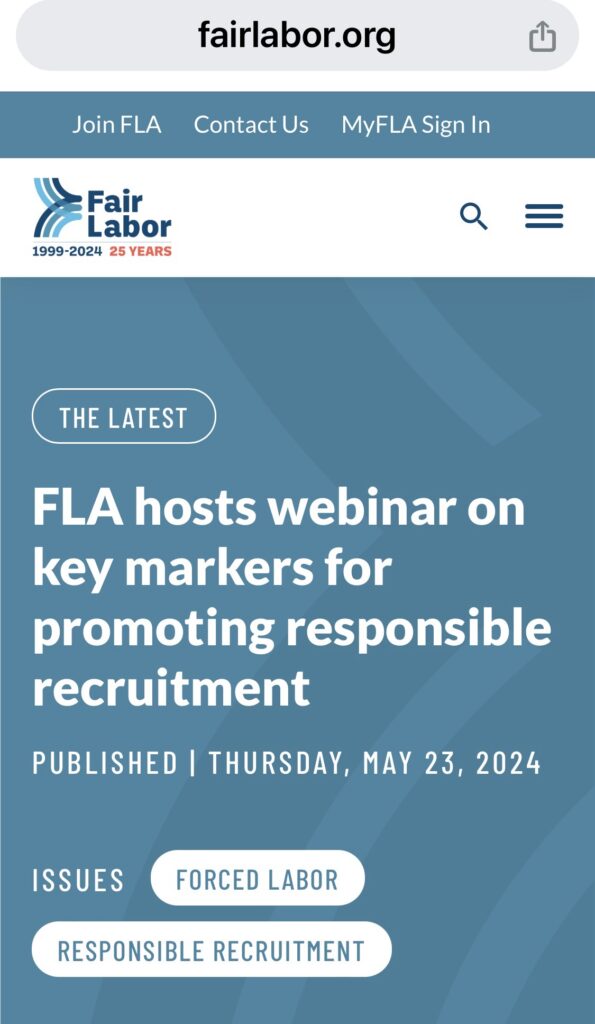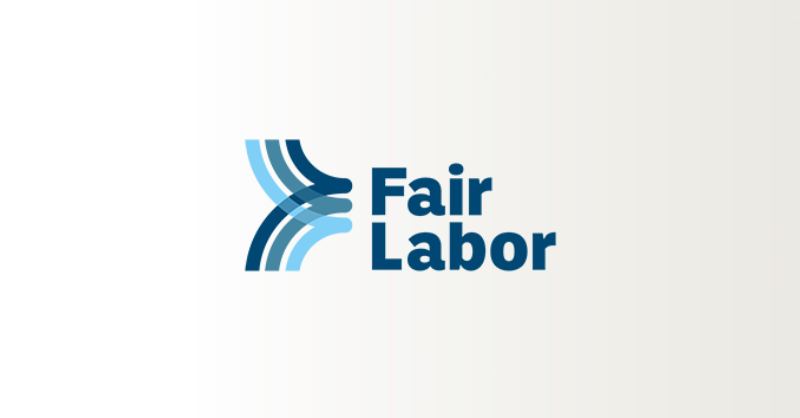23rd May 2024: FLA hosts webinar on key markers for promoting responsible recruitment: launch of my guidance note (materials, videos and PowerPoint)
The FLA has hosted a webinar on key markers for promoting responsible recruitment. Despite many years of effort by worker advocates, governments, industry, and multilateral organizations, migrant workers in the apparel and footwear sectors continue to face forced labor risks due to the ongoing practice of charging workers for employment offers. Recruitment processes remain complex, and working with labor brokers or other recruitment actors can pose hidden risks for companies.
Original Source: Fair Labor – 23rd May 2024

In May 2024, Fair Labor Association (FLA) joined with international migrant worker rights specialist, Andy Hall, to develop guidance for the industry on how to overcome recruitment challenges, eradicate recruitment fees, and promote decent work in their supply chains.
During a webinar hosted by FLA, Hall provided concrete recommendations on how companies can cultivate fair, transparent recruitment practices. Additionally, Nate Herman from the American Apparel and Footwear Association (AAFA) shared an overview of the FLA/AAFA Commitment to Responsible Recruitment, underscoring how it obliges brands to work with suppliers to eliminate recruitment fees.
🆕 Last week, we released a new guidance document, developed with @atomicalandy, that highlights 15 key #ResponsibleRecruitment markers and what buyers and brands can do to cultivate fair, transparent practices within their supply chains. Learn more: https://t.co/gpR36wr7hn pic.twitter.com/Divs591am5
— Fair Labor Association (@FairLaborAssoc) May 23, 2024
Key webinar highlights included:
- An overview of the root cause of irresponsible recruitment, which is tied to the “kickbacks” process that often leads to recruitment actors passing on the fees of recruitment to workers.
- A discussion of the role brands, buyers, and investors play, and how they can use their leverage to promote ethical practices.
- A presentation of the 15 key markers for promoting responsible recruitment, which include practices such as ensuring good governance practice; promoting open tender and direct sourcing processes; setting realistic expectations around budget, timelines, and payment schedules; and always treating workers with dignity and respect.

